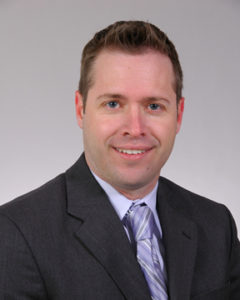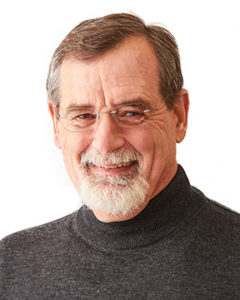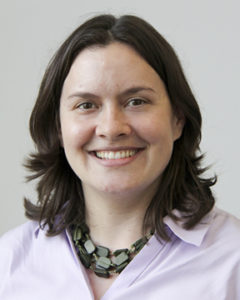Posted 10:10 a.m. Monday, Oct. 9, 2017

Three UWL faculty take teaching abroad this year through Fulbright Scholarship Program.
Three UWL faculty take teaching abroad this year through Fulbright Scholarship Program
Three UW-La Crosse faculty will teach, conduct research and build relationships across cultures as part of the prestigious Fulbright U.S. Scholar Program this academic year. Traveling to the countries of Azerbaijan, Slovak Republic and Tanzania, they’ll work to improve public health, help solve economic challenges, and bring underrepresented authors into the pages of history. Eleven faculty and students have earned financial awards through the prestigious Fulbright U.S. Scholar Program while at UWL since 2009. The three faculty most recently awarded grants include:- TJ Brooks, professor of economics
- Robert Jecklin, assistant professor of health education and health promotion
- Julie Weiskopf, associate professor of history
TJ BROOKS
[caption id="attachment_50026" align="alignright" width="240"] TJ Brooks, professor of economics[/caption]
TJ Brooks, UWL professor of economics, calls the Slovak Republic an exciting place for an economist to work after decades of economic, political and social changes, including adoption of the Euro. Starting this spring semester, he hopes to gain an understanding of the Slovak perspective on those changes. Moreover, he hopes to grow interculturally and professionally while sharing his skills.
Brooks will conduct research and teach at the University of Economics in Bratislava, Slovakia, from January-June 2018. He plans to teach a graduate course on macroeconomic theory while also discussing the comparative aspects of the U.S. and European Union.
He also brings experience that could help the Slovak university in its quest for AACSB accreditation, a prestigious internationally-recognized accreditation for business and accounting programs, which UWL’s CBA has attained. Brooks served as chair of the Assurance of Learning Task force during the CBA’s most recent re-accreditation process.
Brooks also plans to continue his research abroad. Like Wisconsin’s counties, the Slovak Republic also has sub-national, regional economies that vary greatly in their performance; however, no comprehensive indices exist at these levels, he explains. His research will aim to investigate economic business cycles at the sub-national level and identify metrics that could be used to compare them. This would be beneficial to academics, practitioners and government officials alike, he says.
Back home, Brooks says his experiences abroad will ultimately help him be a better teacher as he will have experienced education in a new context with students from different cultural and economic backgrounds.
TJ Brooks, professor of economics[/caption]
TJ Brooks, UWL professor of economics, calls the Slovak Republic an exciting place for an economist to work after decades of economic, political and social changes, including adoption of the Euro. Starting this spring semester, he hopes to gain an understanding of the Slovak perspective on those changes. Moreover, he hopes to grow interculturally and professionally while sharing his skills.
Brooks will conduct research and teach at the University of Economics in Bratislava, Slovakia, from January-June 2018. He plans to teach a graduate course on macroeconomic theory while also discussing the comparative aspects of the U.S. and European Union.
He also brings experience that could help the Slovak university in its quest for AACSB accreditation, a prestigious internationally-recognized accreditation for business and accounting programs, which UWL’s CBA has attained. Brooks served as chair of the Assurance of Learning Task force during the CBA’s most recent re-accreditation process.
Brooks also plans to continue his research abroad. Like Wisconsin’s counties, the Slovak Republic also has sub-national, regional economies that vary greatly in their performance; however, no comprehensive indices exist at these levels, he explains. His research will aim to investigate economic business cycles at the sub-national level and identify metrics that could be used to compare them. This would be beneficial to academics, practitioners and government officials alike, he says.
Back home, Brooks says his experiences abroad will ultimately help him be a better teacher as he will have experienced education in a new context with students from different cultural and economic backgrounds.
ROBERT JECKLIN
[caption id="attachment_50028" align="alignright" width="240"] Robert Jecklin, assistant professor of health education and health promotion[/caption]
Robert Jecklin, UWL assistant professor of health education and health promotion, aims to contribute to the development of public health in Azerbaijan, while building relationships during his second visit to the country on a Fulbright.
He will return to Baku, Azerbaijan, in spring 2018 to teach future science teachers about public health at Khazar University, a private university that hosted his last Fulbright in 2014. He’ll also teach at Azerbaijan Medical University.
Azerbaijan is a country of about 10 million people, and about 95 percent of the population is Muslim, explains Jecklin. “Their former Soviet Republic lies at the crossroads of global energy politics between Iran on the south and Russia on the north,” he says. “Azerbaijanis, like Americans, are not of one mind about the future of their society. Some long for the Soviet days, some are disappointed in Western influence, some are hopeful about continued influence from Europe and North America, and all expect progress.”
Jecklin says the goal of Fulbright is the creation of mutual respect and understanding among nations at a personal level. Since his first Fulbright, he has helped further that understanding with public talks about Azerbaijan and anecdotes in his UWL classes. This spring in Azerbaijan he plans to continue sharing his experiences, connecting Azerbaijani colleagues to other Americans, and broadening the network of colleagues in public health.
These relationships lead to more contacts and further relationship-building conversations, he says.
Robert Jecklin, assistant professor of health education and health promotion[/caption]
Robert Jecklin, UWL assistant professor of health education and health promotion, aims to contribute to the development of public health in Azerbaijan, while building relationships during his second visit to the country on a Fulbright.
He will return to Baku, Azerbaijan, in spring 2018 to teach future science teachers about public health at Khazar University, a private university that hosted his last Fulbright in 2014. He’ll also teach at Azerbaijan Medical University.
Azerbaijan is a country of about 10 million people, and about 95 percent of the population is Muslim, explains Jecklin. “Their former Soviet Republic lies at the crossroads of global energy politics between Iran on the south and Russia on the north,” he says. “Azerbaijanis, like Americans, are not of one mind about the future of their society. Some long for the Soviet days, some are disappointed in Western influence, some are hopeful about continued influence from Europe and North America, and all expect progress.”
Jecklin says the goal of Fulbright is the creation of mutual respect and understanding among nations at a personal level. Since his first Fulbright, he has helped further that understanding with public talks about Azerbaijan and anecdotes in his UWL classes. This spring in Azerbaijan he plans to continue sharing his experiences, connecting Azerbaijani colleagues to other Americans, and broadening the network of colleagues in public health.
These relationships lead to more contacts and further relationship-building conversations, he says.
JULIE WEISKOPF
[caption id="attachment_50030" align="alignright" width="240"] Julie Weiskopf, associate professor of history[/caption]
Julie Weiskopf, UWL associate professor of history, is in Tanzania through June on a 10-month Fulbright grant. She is teaching undergraduate and graduate history students at the University of Dar es Salaam. She’ll also work with master’s students to gather oral history interviews as part of their field experience.
Weiskopf says one of the best parts the Fulbright program is getting to know Tanzanian students and colleagues. She aims to build connections with history faculty from different regions of Tanzania and potentially produce some co-authored work.
“Tanzanian historians are so overworked by their enormous class sizes and have such difficulty gaining research funding that they are severely underrepresented in publications,” she says.
Weiskopf’s work in Tanzania relates to both the history of nationalism and the history of public health in Tanzania — two topics that will translate into new material and ideas for courses she teaches at UWL on African health and healing and African nationalism.
“I’m happiest as a scholar when there is dynamism between my teaching and research, so the prospect of this coming year is exciting!” she says.
Julie Weiskopf, associate professor of history[/caption]
Julie Weiskopf, UWL associate professor of history, is in Tanzania through June on a 10-month Fulbright grant. She is teaching undergraduate and graduate history students at the University of Dar es Salaam. She’ll also work with master’s students to gather oral history interviews as part of their field experience.
Weiskopf says one of the best parts the Fulbright program is getting to know Tanzanian students and colleagues. She aims to build connections with history faculty from different regions of Tanzania and potentially produce some co-authored work.
“Tanzanian historians are so overworked by their enormous class sizes and have such difficulty gaining research funding that they are severely underrepresented in publications,” she says.
Weiskopf’s work in Tanzania relates to both the history of nationalism and the history of public health in Tanzania — two topics that will translate into new material and ideas for courses she teaches at UWL on African health and healing and African nationalism.
“I’m happiest as a scholar when there is dynamism between my teaching and research, so the prospect of this coming year is exciting!” she says.